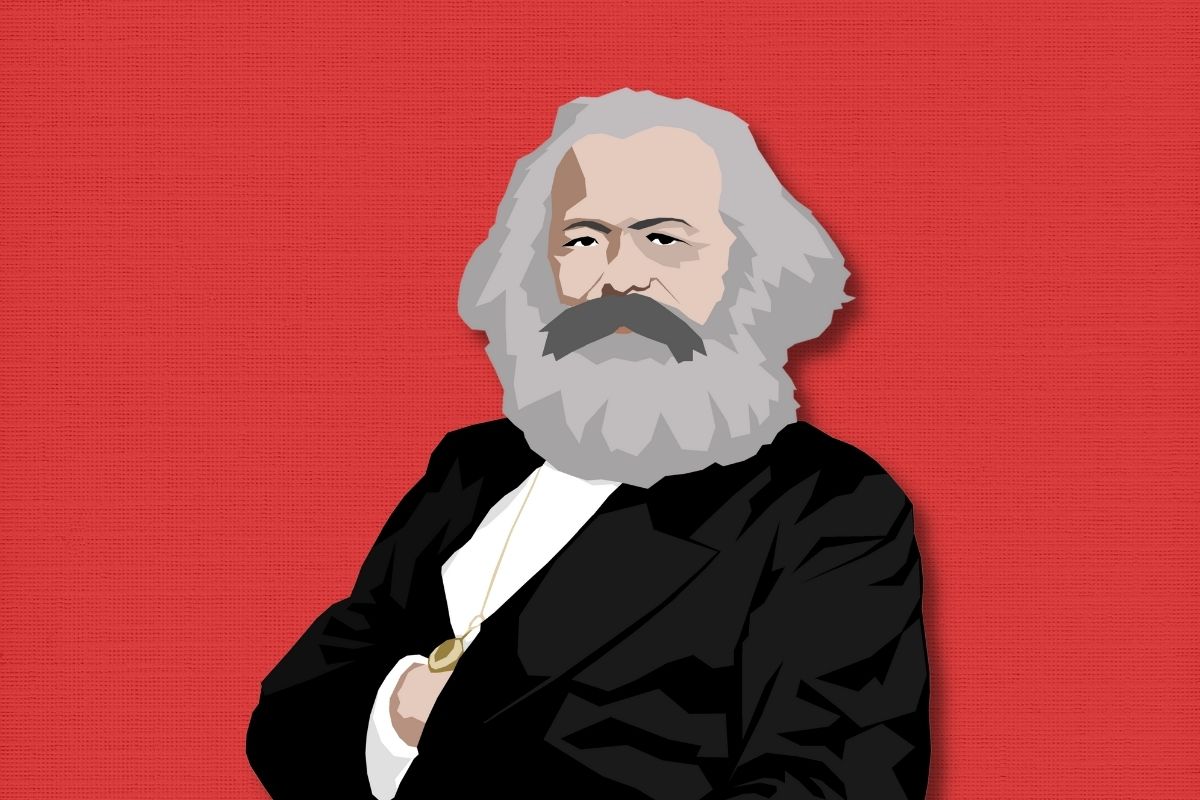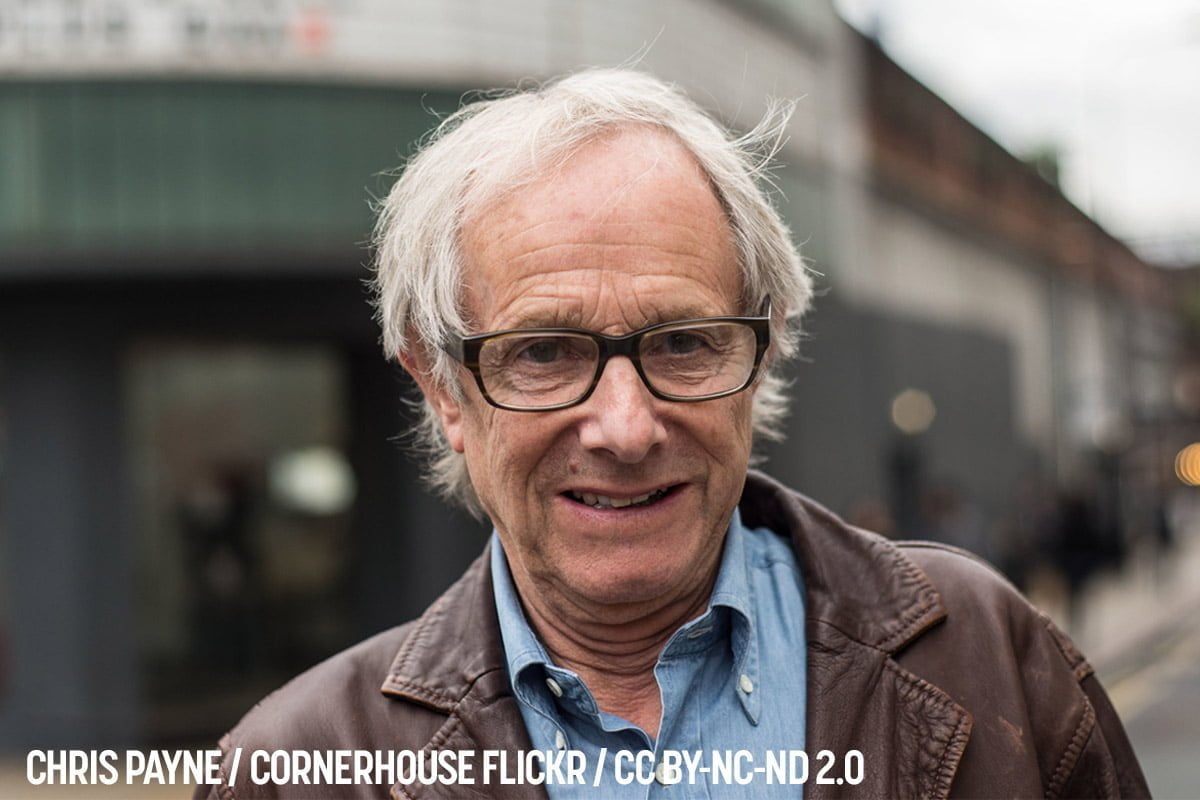Left-wing director Ken Loach recently spoke with Socialist Appeal, discussing the civil war inside the Labour Party and the prospects for the left. As Ken emphasises, the ideas of Marxism will play a vital role in the struggles ahead.
Ken Loach, the internationally renowned left-wing film director, spoke to Rob Sewell (editor of Socialist Appeal) in the run-up to this year’s Labour Party conference in Brighton.
“We can’t let Starmer decide how we organise,” Ken emphasised, speaking about the ongoing Labour civil war. “If we let Starmer define that, then we give in to him.”
Clearly Ken Loach, who put everything into supporting the Corbyn movement, is deeply alarmed at the way the right wing is wrecking the party. He believes that the left urgently needs to regroup.
“We need a mass movement inside and outside the Labour Party, and then we begin to have a political base and end the fragmentation that’s happened. That’s our immediate task I think.”
Purge
Since we first spoke in July, following the proscription of Socialist Appeal, Ken himself has been unceremoniously expelled. We therefore started by asking what he thought of the current crisis in the Labour Party and the significance of Starmer’s purge.
“The ruling class got a big fright when Corbyn was elected, and an even bigger fright when he nearly won the general election in 2017, and so they destroyed him,” Ken responded. “That’s the point of the purge, to make Labour safe for corporate power – and Starmer’s their man.”
“In the future, when Labour is next needed by the establishment, it must be relied upon not to do anything drastic,” Ken continued. “They therefore want a Labour Party that they can rely upon not to challenge the established power.”
Blairism

We then discussed how the right wing are agents of big business – our enemies within the labour movement. “You’re dead right,” Ken agreed. “They are the biggest obstacle to change, because they subvert the energy for change that a lot of people have, and that can lead us into a blind alley.”
“Blair for example, he changed nothing, and yet he came to power on a wave of people wanting something different.
“And yet he continued with privatisation, he continued with the same economic structure, and everything stems from that. You know the diminution of worker’s rights stems from economic systems.”
This attempt to transform the Labour Party into a Tory Party mark-two was begun by Tony Blair, who Starmer is modelling himself upon. “Starmer wants that; he wants New Labour again,” Ken asserted. “Mandelson’s back in for example.”
“It’s about maintaining the power of the big corporations, and maybe being slightly more generous with public services so that nothing substantial will change. They will be in power as long as they’re useful, but nothing substantial will change and there’ll be even more demoralisation.”
‘Broad church’
Ken was sceptical about appeals from the left for a ‘broad church’ Labour Party. “There’s never been a broad church,” he noted. “It’s always been dominated by right-wing social democrats, who simply believe in the present economic system.
“They only want the crumbs falling from the table – and that’s the fundamental schism: between accepting the present capitalist society and one where the economic system has to be restructured around democratic ownership and economic control.”
This year’s Labour conference has ended in a victory for the right wing. The left must learn the lessons from the rise and fall of the Corbyn movement. The only way forward is to build the forces of Marxism. Join us in this vital task.https://t.co/LU7EVJXnLw
— Socialist Appeal (@socialist_app) October 1, 2021
The more the left transformed the Labour Party into a genuine socialist party, the more Labour’s right wing threatened to split away. Ken agreed that this would have been a good thing. Nevertheless, the right held on.
“I think there’s a big disadvantage now because of this. You could say the right wing judged their tactics better than we did, or some of us did. The right wing understood that holding onto the name, the structure and the tradition of the Labour Party, they will keep the vast majority of Labour voters, while those who split away have very little credibility.”
“That’s where they’ve triumphed and we haven’t,” added Ken sorrowfully. “We should have got control over the machine of the party, just like Starmer has done. Once you get control, then you can run the Labour Party as it needs to be.”
Clause IV

Our discussion then moved onto the question of the recent proscriptions – including that of Socialist Appeal. The right wing have declared that banned groups such as Socialist Appeal do not share Labour’s ‘aims and values’, despite the fact that Marxism has a long history in the party.
Ken agreed that Labour must stand for fundamental change, as opposed to attempting to reform capitalism: “If we take the old Clause IV and read it, it’s about revolutionary change in the interests of the working class. It represents the independent interests of the working class, which are different from the ruling class.
“And that’s the essential point, it seeks to transform society in the interests of the working class.”
The party adopted Clause IV under the impact of the Russian Revolution, and the experience of the First World War. Labour became a socialist party in its aims – but only “in theory, and never in practice,” Ken correctly noted.
“I think this is a political argument to have within the left. There’s this idea that there’s a soft left, but it doesn’t exist. You either accept class struggle or that we’re all fundamentally in the same boat. You can’t have a foot in both camps.”
Marxism

In this respect, given the crisis of capitalism, Ken agreed that the ideas of Marxism are very relevant. “They’re essential,” he insisted. “You can’t understand what’s happening without Marx’s ideas.”
“Of course the situations are different; and of course they evolve after a century and a half,” Ken continued. “But nevertheless the core principle is the same – that society is riven at its very centre by conflicts of class interests. You can only make sense of the world by seeing it that way.”
“The core ideas and analysis have been validated over and over again – most clearly by Thatcher. She called it class war, and she demonstrated that in order to survive a crisis, the working class has to pay. And she made certain that the working class did pay.”
Crisis
As the clock wound down on our interview, Ken remarked about all the questions that we hadn’t had time to cover – in particular, on the social crisis facing the working class in Britain.
“We haven’t talked about the collapse in society, with the rise of the gig economy, the insecurity, the homelessness, the regions where they’ve got nothing… there’s many places that are just left behind.”
“And we know the market economy won’t solve this,” Ken stated, getting to the root of the problem. “The Tories’ idea is to invest. But they give money to private corporations and bribe them to go for a bit, and once the corporations have ripped their profit out of it, they’ll be off. And that’s the market, isn’t it?”
“It’s a failure of the market economy,” Ken correctly asserted, before denouncing the hypocrisy of the establishment media. “This is their system – this is the one they promote!”
“This is the absurdity of it, they say ‘look how it’s all going wrong’. But they won’t locate the disease. And that’s our job – to say: This is your system. This is the market economy. You shoulder the blame. We’ve got a better idea!”
Challenges
Despite the left’s setbacks, Ken is still optimistic about the future.
“Around a quarter of a million, maybe 300,000 people joined Labour because of Jeremy Corbyn,” he stated. “They still have that idea in their head – plus the many other campaigning groups outside Labour, and of course the left in the unions, and people of good will and principles.”
“If we could keep that large group of people together, we could still have a significant political presence.”
Of course, Ken is aware of the challenges that lie ahead – in particular, the need for urgency.
“When I was first involved in politics, you could look forward to long decades of struggle with the possibility of winning in the end,” he commented. “We don’t have that long now. Climate change is upon us. Time is running out.”
As Ken says, the urgent task facing the left is to rally workers and youth behind a bold socialist vision to transform society. Whatever the outcome at the Labour conference, this is the struggle that lies ahead of us: the struggle for socialism – in which the ideas of Marxism will play a vital role.






